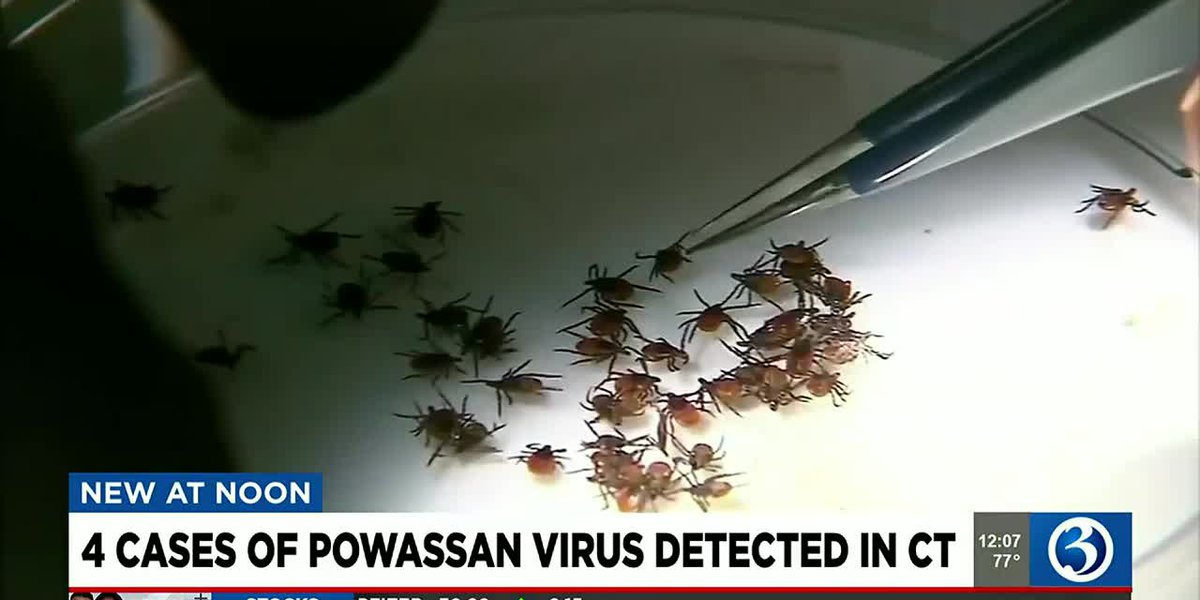Infection
4 cases of Powassan virus confirmed in CT
HARTFORD, CT (WFSB) – Four cases of the Powassan virus have been confirmed in Connecticut, according to state health officials.
The Department of Public Health announced on Monday that the four residents tested positive for the tick-borne virus this year.
The patients included two men aged 60 years and older who were residents of Middlesex and Litchfield counties. The DPH said they became ill during early July.
The other two were female patients aged 50 years and older. They were residents of Windham and Litchfield counties who became ill during late July.
Laboratory tests performed at the Centers for Disease Control and Prevention Laboratory in Ft. Collins, CO, confirmed the presence of antibodies to Powassan, or POWV, for all of the patients. The DPH said the patients reported a known tick bite and were hospitalized with a central nervous system disease. They have since been discharged and were recovering.
“The identification of four Connecticut residents with Powassan virus-associated illness emphasizes the importance of taking actions to protect yourself from tick bites from now through the late fall,” said DPH commissioner Manisha Juthani, MD. “Using insect repellent, avoiding areas where ticks are likely, and checking carefully for ticks after being outside can reduce the chance of you or your children being infected with this virus.”
“In recent years we have been receiving a higher than usual number of ticks, and this year so far, the laboratory has received 4,616 tick submissions, including 3,089 blacklegged ticks, from state residents directly or through health departments and physicians’ offices, in comparison to 1,889 blacklegged ticks in 2022,” said Dr. Goudarz Molaei, a chief scientist who also directs the Connecticut Tick and Tick-borne Pathogen Surveillance Program at the Connecticut Agricultural Experiment Station. “The persistent and expanding threat posed by blacklegged ticks, coupled with ongoing range expansion and establishment in new areas of invasive ticks, the Asian long horned tick, the Gulf Coast tick, and the lone star tick, and the confirmation of four Powassan virus disease cases in Connecticut residents, highlights the increasing public health challenges associated with ticks and tick-borne diseases.”
The DPH said from 2016 to 2022, 19 cases of POWV associated illness were reported in Connecticut, including six in 2022. Two of the infections last year were fatal.
Powassan virus is spread to people through the bite of an infected blacklegged, or deer tick. It takes from one week to one month after the bite of an infected tick to develop symptoms of POWV disease, and the virus can be transmitted in as little as 15 minutes after the tick first attaches.
Powassan virus associated illness has been reported from early spring until late fall, the DPH said.
While most people infected with POWV likely experience no symptoms or a mild flu-like illness, some people will develop severe illness that affects the central nervous system. About one out of 10 cases of severe illness are fatal and approximately half of survivors experience long-term health problems, the DPH noted.
Severe cases may begin with fever, vomiting, headache, or weakness and rapidly progress to confusion, loss of coordination, difficulty speaking, or seizures.
There is no vaccine nor a specific treatment for POWV associated illness. Severe illness is treated by supportive therapy which may include hospitalization, respiratory support, and hydration.
More information on the virus can be read on the CDC’s website here.
Copyright 2023 WFSB. All rights reserved.

